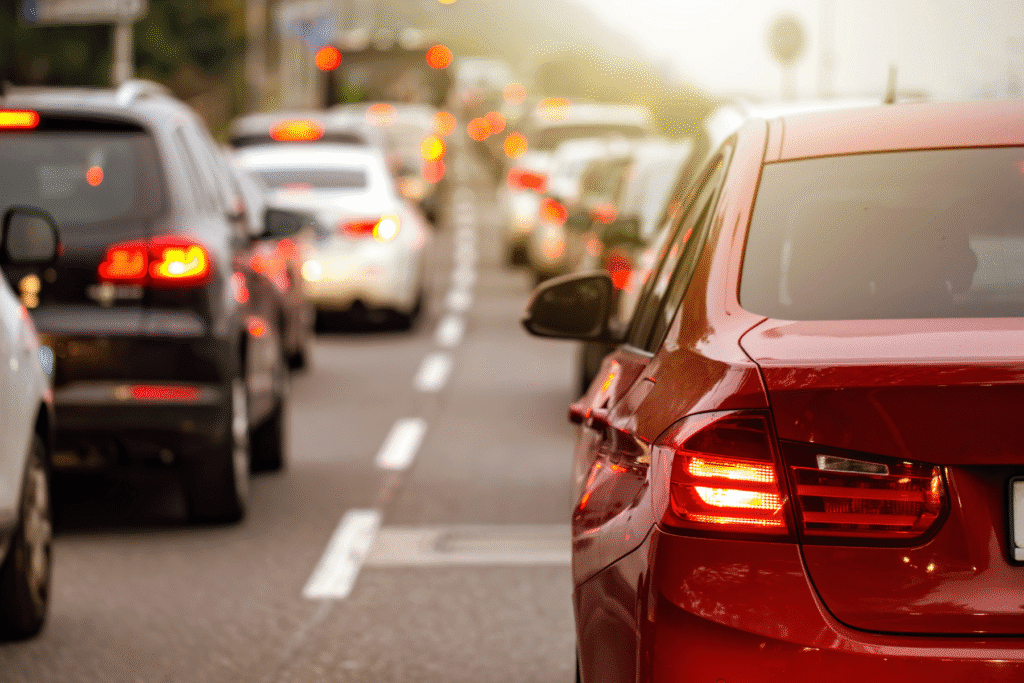What You Need to Know
Brake check accidents are a growing concern on Arizona roads, particularly in high-traffic areas like Scottsdale and Lake Havasu. These accidents typically occur when a driver abruptly slams on their brakes without valid reason—often to intimidate or retaliate against the driver behind them. While many assume the rear driver is always at fault in rear-end collisions, brake checking introduces a serious legal gray area, especially when road rage or aggressive driving is involved.
What Is a Brake Check Accident?
A “brake check” refers to the intentional and sudden application of brakes to cause the vehicle behind to brake abruptly. Often rooted in road rage, it’s used as a scare tactic or to “teach a lesson” to a tailgating driver. However, this behavior is extremely dangerous and frequently leads to rear-end collisions, multi-car pileups, or even injuries.
Is Brake Checking Illegal in Arizona?
Yes. Arizona law prohibits reckless driving, and brake checking can easily fall under this category. According to Arizona Revised Statutes (A.R.S.) § 28-693, reckless driving includes operating a vehicle with “willful or wanton disregard for the safety of persons or property.” Deliberately causing another car to crash into you by slamming on your brakes without cause can result in criminal charges, civil liability, or both.
If brake checking results in an accident, the driver who performed the maneuver can be held partially or fully liable—especially if dashcam footage or witness statements support the claim.
Who Is Liable in a Brake Check Collision?
In most rear-end accidents, the rear driver is presumed to be at fault due to following too closely or failing to stop in time. However, brake check accidents challenge this presumption. If it’s proven that the lead driver deliberately slammed on the brakes, they may share or bear full responsibility for the crash.
To determine liability, the court or insurance adjusters will examine:
- Dashcam or surveillance footage
- Witness statements
- Driving history of both parties
- Police reports and citations issued at the scene
Arizona follows a pure comparative negligence rule, meaning fault can be shared between drivers. For example, if one driver was tailgating and the other brake-checked, both may be found partially liable, impacting compensation.
Common Injuries in Brake Check Accidents
Because of the abrupt nature of these accidents, injuries are often severe and can include:
- Whiplash and neck strain
- Spinal injuries
- Head trauma from airbag deployment
- Broken bones
- Psychological trauma, especially if the incident involved road rage
If you’ve been injured in a brake check accident, it’s essential to seek medical attention immediately and contact an experienced personal injury lawyer.
What to Do If You’re Involved in a Brake Check Crash
- Call 911 – Always report the accident and request medical assistance if needed.
- Document the scene – Take photos, collect witness information, and request a copy of the police report.
- Avoid confrontation – If Road rage is involved, do not engage. Wait for law enforcement.
- Contact an attorney – A qualified personal injury lawyer can help you navigate complex liability issues and secure the compensation you deserve.
Rideout Law Group: Your Arizona Personal Injury Advocates
At Rideout Law Group, we understand the complexities of brake check accidents and the emotional and physical toll they take on victims. With offices in both Scottsdale and Lake Havasu, our team offers local representation with decades of combined legal experience. Whether you’re dealing with insurance companies or considering litigation, we provide aggressive advocacy and compassionate support every step of the way.
📍 Scottsdale Office: 11111 N Scottsdale Rd, Suite 225, Scottsdale, AZ 85254
📍 Lake Havasu Office: 2800 Sweetwater Ave, Suite A104, Lake Havasu City, AZ 86406
🚨 Hurt in a brake check accident? Contact us today at (833) 854-8181 for a free consultation and let our Arizona injury attorneys fight for your rights.
This blog post is for informational purposes only and does not constitute legal advice. Reading this content does not create an attorney-client relationship. For legal guidance specific to your situation, please contact a licensed attorney at Rideout Law Group.

